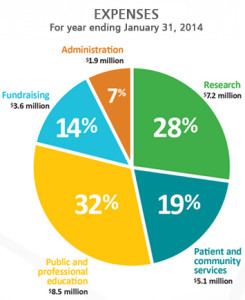A week ago I wrote an article on the Controversies surrounding the ALS Ice Bucket Challenge and my response. The spread and intensity of the Ice Bucket Challenge does not seem to be slowing down. In the past one week, I have come across some interesting thought provoking facts and some very interesting opinions.
Animal Testing

Some people including Pamela Anderson have decided to say no to taking the ice bucket challenge and no to donating to ALS charity because of their stance on animal testing. Anderson wrote:
Sorry -I can’t bring myself to do your Ice bucket challenge.I enjoy a good dare- It’s always good to bring awareness – in fun, creative ways / I don’t want to take away from that.but it had me thinking. Digging a bit deeper. I found that we may not be aligned – in our messages. So…- I thought Instead / I’d challenge ALS to stop Animal testing /– Recent experiments funded by the ALS Association, mice had holes drilled into their skulls, were inflicted with crippling illnesses, and were forced to run on an inclined treadmill until they collapsed from exhaustion. Monkeys had chemicals injected into their brains and backs and were later killed and dissected.
[The Daily Banter]
If you dig deeper you will find that ALS research is not the only place where animal testing is used. In fact animals have been used repeatedly throughout the history of biomedical research. Early Greek physician-scientists, such as Aristotle, (384 – 322 BC) and Erasistratus, (304 – 258 BC), performed experiments on living animals. (source) In recent years, the practice of using animals for biomedical research has come under severe criticism by animal protection and animal rights groups. To express my view on has been difficult for me.
My stance on this is the hope to find middle ground on this issue. I do believe that if animal testing is ‘necessary‘ to find cures of diseases that affect us humans, then perhaps it may be justified for humans to do so. However, it is my hope that scientists push towards a more ‘humane’ form of testing or simply find ways to steer away from animal testing and towards other models.
What is your take on the practice of using animals for biomedical research?
Wasting Water
This issue has come up time and time again in conversations with people who are against ‘wasting water’ for the ice bucket challenge. My take on this is that in the context of the ALS Ice Bucket Challenge, I do not believe that people are wasting water when they take the ice bucket challenge. It has been an integral part of ALS awareness campaign. Please read “Controversies and Cynicism Surrounding the ALS Ice Bucket Challenge“.
To those skeptics who argue that water is being wasted in this Ice bucket challenge, I challenge them to do a little thought experiment: In the context of raising awareness of ALS, imagine taking out the water/ice aspect of the challenge where people simply donate money to ALS charity and then challenge others to do the same. Do you see this as an effective campaign? (The question is rhetorical. The obvious answer is NO. For supporting argument please read “Controversies and Cynicism Surrounding the ALS Ice Bucket Challenge“).
However, let me take a step back for a moment. There are many elements involved when something becomes ‘viral’. Certain elements are necessary until an idea has reached ‘The Tipping Point’, but once it passes that tipping point there isn’t much that will stop it from spreading and at this point certain elements lose their status as ‘necessary. ‘(Recommended reading “The Tipping Point: How Little Things Can Make a Big Difference“). In this case the ALS ice bucket challenge may have already reached a point where using Ice/water may not even be necessary.
Where is the Money Going?

You can view ALS Association’s financial statements online. At first glance one might think it’s a negative that ONLY 28% of funds go into research, but a closer look reveals that ALSA has a broader mission:
“We also spend money on care services to people living with the disease and public policy initiatives to encourage the advancement of legislative policies that benefit ALS families. Again, we spend a total of 79% on programs and services.”
The ALS Association has a four-star rating from Charity Navigator, and has also been rated favourable by Charity Watch (watchdog groups in the industry). Just how much weight should be placed on this spending measurement and the ratings in general is a flashpoint in the non-profit world, says Suzanne Perry, a senior editor at the Chronicle of Philanthropy. “It’s a love-hate relationship. If [charities] get rated highly, they broadcast it everywhere. If they get a lower grade, the methodology is ‘flawed,’” she says.[http://fortune.com/2014/08/22/ice-bucket-challenge-als-charity/]
Some have claimed that employee salaries at the ALS Foundation are out-of-this-WORLD![Political Ears] ALSA however says that the salaries of its executive staff are in line with the job markets where they are located—and in line with those of other national charities. This addresses the question: “Are employee salaries at ALSA high compared to other non-profit organizations?.” But the bigger question is “Should employees at charitable organizations be getting paid that much at all.
ALS Association addresses some of the donors and skeptics in “The ALS Association Debunks Fake News Article that Went Viral”. It seems to me that ASLA has been performing according the Non-Profit organization’s guidelines. But the question is: Is this enough?
But wait, here’s how Dan Pallotta shows us that “The way we think about charity is dead wrong”
But lastly:
ALSA: Oh you know what’s a great idea – Let’s Trademark “Ice Bucket Challenge”?
ALSA filed an application with the US Patent and Trademark Office seeking to trademark the term “Ice Bucket Challenge”. WAIT…. WHAT!?!

Many people called the move “disgusting,” “shameful,” and “in poor taste,” leading the group to withdraw its application. WHAT WERE THEY THINKING?!?
So my final take is this: Know where your money is getting spent! Non-profit organizations usually have their financial statements available to public and if not, you can ask for it. Study what they are doing and if it aligns with your values, donate generously, if not, then voice your concerns.
We live in a highly democratic era of the Internet – every tweet, every video, every blog post and every Facebook comment counts.
Also, take an analytical approach when judging whether something is right or wrong. It is difficult to make people work for non-profit organization – people do need to get paid, but the question again is: are those salaries justified – you tell me!
So this is my (second) take on the ALS Ice Bucket Challenge – What’s yours?




